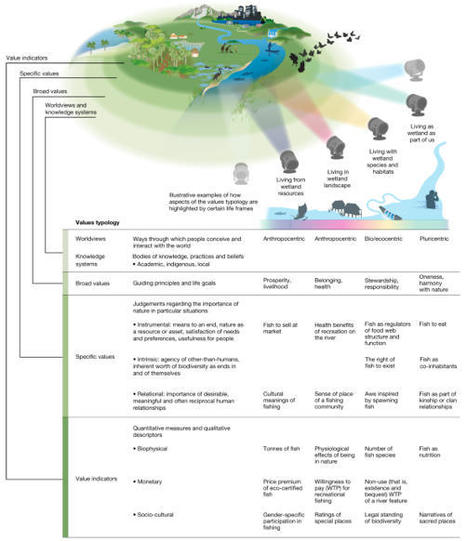Twenty-five years since foundational publications on valuing ecosystem services for human well-being1,2, addressing the global biodiversity crisis3 still implies confronting barriers to incorporating nature’s diverse values into decision-making. These barriers include powerful interests supported by current norms and legal rules such as property rights, which determine whose values and which values of nature are acted on. A better understanding of how and why nature is (under)valued is more urgent than ever4. Notwithstanding agreements to incorporate nature’s values into actions, including the Kunming-Montreal Global Biodiversity Framework (GBF)5 and the UN Sustainable Development Goals6, predominant environmental and development policies still prioritize a subset of values, particularly those linked to markets, and ignore other ways people relate to and benefit from nature7. Arguably, a ‘values crisis’ underpins the intertwined crises of biodiversity loss and climate change8, pandemic emergence9 and socio-environmental injustices10.
Research and publish the best content.
Get Started for FREE
Sign up with Facebook Sign up with X
I don't have a Facebook or a X account
Already have an account: Login
Revue de presse et du net par le Pôle de partage des connaissances S&T de l'Office français de la biodiversité
Curated by
DocBiodiv
 Your new post is loading... Your new post is loading...
 Your new post is loading... Your new post is loading...
|
|












Pascual, U., Balvanera, P., Anderson, C.B. et al. Diverse values of nature for sustainability. Nature (2023). https://doi.org/10.1038/s41586-023-06406-9
Sur la base de plus de 50 000 publications scientifiques, documents politiques et sources de connaissances autochtones et locales, l'IPBES a évalué les connaissances sur les diverses valeurs et méthodes d'évaluation de la nature. Objectif : tirer parti des changements transformateurs vers un avenir plus juste (c'est-à-dire un traitement équitable des personnes et de la nature, y compris l'équité inter et intragénérationnelle) et durable.
Cet article publié dans Nature (9/08/2023) fait suite à la publication de juillet 2022 : Évaluation des valeurs de l'IPBES - Des décisions fondées sur un ensemble restreint de valeurs marchandes de la nature sous-tendent la crise mondiale de la biodiversité